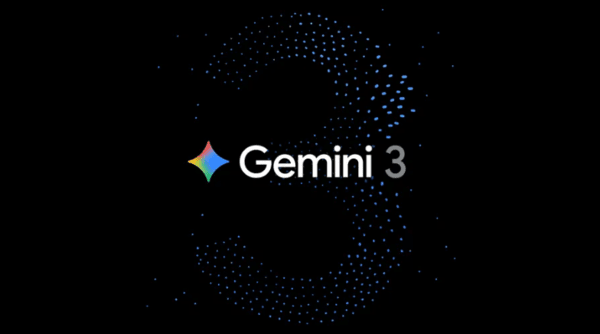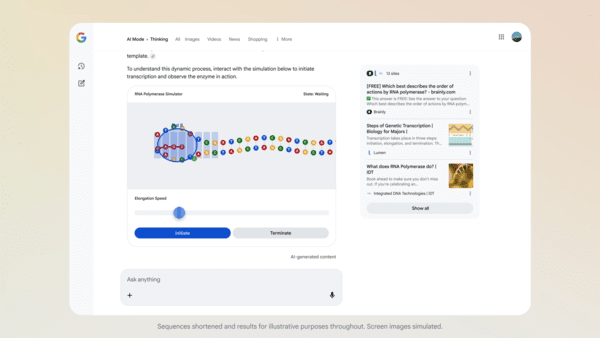Google has taken a bold step in the rapidly intensifying AI race. On Nov. 18 local time, the company unveiled Gemini 3, its next-generation AI model, in a surprise announcement that arrives earlier than expected. The release marks more than a product update. It represents a major shift that spans Google Search, apps, developer tools and the company’s emerging agent ecosystem. For Google, it is a critical moment to reclaim momentum in the global AI competition.

Two Years After the ChatGPT Shock, Google Tries to Rewrite Its Comeback Story
When ChatGPT disrupted the world at the end of 2022, no company felt the impact more sharply than Google. Predictions that search was “over” sent shockwaves through the industry. Google responded with the first Gemini models, but early reviews fell short of expectations.
Over the next two years, Google changed its strategy. Instead of competing with a single chatbot, the company rebuilt its entire product stack with AI integrated across Search, YouTube, Gmail, Workspace and Android. Slowly, this approach began to pay off.
AI Overviews, Google’s search summarization feature, now serves 2 billion users monthly. The Gemini app surpassed 650 million monthly active users. These numbers suggested Google was rebuilding its footing in AI.
But challenges remained. Incorrect results and scam-related link issues raised concerns about the reliability and safety of Google’s AI systems. In this context, Gemini 3 arrived. Many predicted a release later this year or on Nov. 22 at the earliest. Google decided not to wait.
Why Google Moved So Fast
The Gemini 3 launch appears to have been accelerated by at least two to four weeks. Three pressures played a decisive role.
▲Rising Competition from OpenAI and Anthropic
OpenAI’s next GPT models and Anthropic’s Claude 4.2 had already raised the bar in reasoning, multimodality and agentic performance. Google needed a response that changed the conversation, not one that simply followed it.
▲Growing Leaks and Market Expectations
Test screens of Gemini 3 spread quickly on X and Discord. On the prediction platform Polymarket, the probability of a Nov. 22 release climbed above 60 percent. Once the date became public speculation, Google appeared to prefer taking back control through an earlier launch.
▲Google’s Push Toward AI Subscriptions and an Integrated Ecosystem
Google is building a unified AI subscription system that spans Gemini Pro and Ultra, Search AI Mode, Workspace AI and developer tools. Gemini 3 sits at the center of this strategy. A faster release supports Google’s plan to accelerate adoption across its ecosystem.

How Gemini 3 Reinvents Search
Gemini 3 is already powering Google’s new AI Mode in Search. This mode creates dynamic visual layouts, interactive tools and simulations that transform traditional search results.
If a user wants to understand the complex movements of the three-body problem, Search instantly generates a physics simulation. If someone compares mortgage options, it creates a personalized loan calculator. These interactive features are not static widgets. They are generated in real time by Gemini 3.
Search is shifting from a list of links to an instant app creation platform. It is a preview of what Google calls a generative user interface.
Why Gemini 3 Is Positioned as an Engine for the Agent Era
Gemini 3 is more than a language model. It is built to power action-taking agents.
Google introduced a new platform called Google Antigravity, which allows developers to combine Gemini 3 with computer-control models and the Nano Banana image model. Agents built on this platform can access browsers, terminals and editors directly.
Long-horizon reasoning is another key advancement. In the Vending-Bench 2 evaluation, where AI systems manage a virtual business for a simulated year, Gemini 3 produced more stable decisions and higher returns than competing models. Google sees this as foundational for real-world agent applications.
What Korean Users and Companies Should Pay Attention To
Several changes are likely to affect Korean individuals, creators and businesses.
▲Search and SEO Will Change Rapidly
The combination of AI Overviews and Gemini-powered Search elevates the importance of accuracy, expertise and structured data. Traditional keyword SEO will lose influence. Google-endorsed content built with GEO standards will gain visibility.
▲Workplace Automation Will Accelerate
Tasks like email sorting, scheduling, document summarization and code refactoring are increasingly suited for Gemini 3-based agents.
▲New Opportunities for Developers and Startups
Platforms like Antigravity and AI Studio lower the barrier for building advanced agents, enabling smaller teams to launch powerful AI-driven services.
Gemini 3 Marks the Beginning of Phase Two in the AI Revolution
With Gemini 3, Google is signaling the start of a new era in AI. Search is evolving. Reasoning-centered models are rising. Agent ecosystems are emerging. AI subscription models are becoming a core business strategy.
ChatGPT launched the first phase of the AI revolution in 2023. Gemini 3 introduces a second phase where AI not only answers questions but executes tasks and supports decision-making.
The race is no longer about who builds the smartest model. It is about who can reshape search, work and business automation the fastest.
Google has made its move. Late or not, today is the earliest moment left to act.
Joo-baek Shinㅣjbshin@kmjournal.net
- Can Google’s Gemini 3 Become the Plot Twist That Restores Its Lost AI Dominance?
- Musk, Bezos, Google: The Race to Build AI Data Centers in Space Has Begun
- “Even a Free Year Didn’t Work”...Google Gemini Struggles in Korea
- Google Goes All In: With Gemini 3, the Search Giant Finally Takes the Gloves Off
- Google’s Gemini 3 Beats GPT-5.1 Benchmarks, Integrated into Search on Day One
- Google Unveils “Nano Banana Pro,” an Image AI Powered by Gemini 3 Pro
- Google Unveils Nano Banana Pro, Aiming to Redefine the Future of Image Generation
- Google Gemini 3 Shows “Signs of Life” as It Pushes Toward AGI
- OpenAI Announces End of GPT-4o API Support in 2026 as the Countdown Begins for Its Flagship Multimodal Model

![[동학] 카카오톡 친구탭, 결국 12월 롤백… “격자형 피드는 선택 옵션으로”](https://cdn.kmjournal.net/news/thumbnail/custom/20251126/5517_10550_1119_1763853080_120.jpg)


![[테크 칼럼] 제미나이3, GPT-5.1을 넘다…AI는 이제 ‘일을 대신하는 시대’로 간다](https://cdn.kmjournal.net/news/thumbnail/custom/20251126/5457_10454_4847_1763621329_120.jpg)



![[낭만 테크 시대] AI 대항해 시대](https://cdn.kmjournal.net/news/thumbnail/custom/20251126/5603_10714_4334_1764121414_160.jpg)

